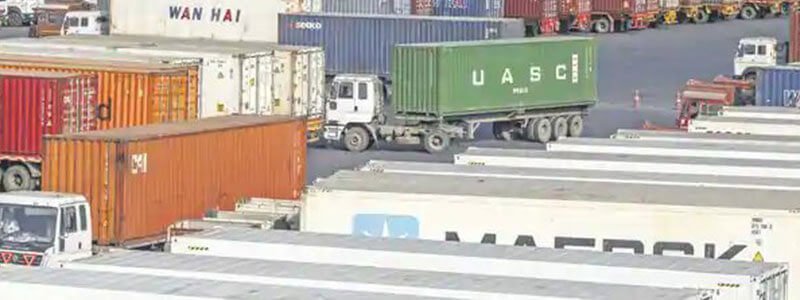Hopes of a controlled restart to industrial production are bedevilled by uncertainty over logistics, even as India heads for a phased exit from the lockdown that began on 25 March.
Given the crippling shortage of workers and trucks, and skeletal air cargo operations, the industry is staring at an uphill task, even as curbs begin to ease from Monday depending on the infections in a region. Besides, the Centre’s orders allowing goods movement are yet to reach local authorities in many districts.
“The whole supply chain is picking up very, very slowly,” said Vineet Agarwal, managing director, TCI, one of India’s largest logistics companies. “Things have improved a little bit in the past few days and some movement of trucks has started, but we have to wait to see how things shape up from Monday. There could be local governments that may not open up.”
The movement of essential goods, such as pharmaceuticals and fast-moving consumer goods (FMCG), has improved, but “there is still huge congestion at ports,” he said.
Apart from the shortage of truck drivers and workers to load and unload goods, there are issues with private ports defying government orders to waive demurrage, or the charge payable to discharge goods within a time.
The port congestion has also hurt exports and imports.
“We have about ₹1,000 crore worth of export orders for the month of April from our distributors and retailers overseas. Due to the lockdown, these orders are now held up,” said Rakesh Sharma, executive director, Bajaj Auto Ltd.
Bajaj, India’s largest exporter of two- and three-wheelers, is exploring options to meet its export orders.
Imports are also proving to be as much of a challenge. Though component shipments from major Chinese suppliers have started after a long gap, domestic manufacturers are unable to move them from ports to their factories.
“A lot of our material is stuck at ports as freight forwarding was not allowed during the lockdown,” said Arpit Chhabra, co-founder and CEO of IoTfy, an Indian electronics company, adding he was hoping to move some of the goods from this week to warehouses.
Rahul Agarwal, managing director and CEO at computer maker Lenovo India, said the company’s factories in China that supply components and products to India are now running at 100% capacity, but goods that have landed here can’t be moved from domestic ports. Lenovo has a factory in Puducherry, which it expects to restart gradually.
While goods movement has perked up a bit, it will still take weeks to improve significantly, said Harsh Pati Singhania, vice-chairman and director, JK Organisation.
“The material that was stuck on roads has all been cleared. But now, the issue is moving goods from your warehouses and godowns to points of consumption,” he said.
The lockdown had resulted in a virtual shutdown of most operations of the diversified business group, which operates in tyres, cement, agri business and paper, besides others.
“Really, the challenge is not the start of factories, but how do we get demand moving. There has to be money in the hands of consumers to spend. Then only you will have the pull (that is needed for production),” Singhania said, urging the government to come out with an economic relief package.
Automobile companies are trying to gauge demand before deciding on the import of components, an industry executive said on condition of anonymity.
Logistics companies are also planning to ramp up operations slowly because of uncertain demand. Leading logistics company Spoton said it will resume services initially to a few pin codes, but its air services will remain suspended for the time being.
In a letter to its customers, Uday R. Sharma, director-sales, Spoton Logistics Pvt. Ltd said, “The operating costs for us during this phase will be higher due to labour and driver shortages, lower throughput led by falling demand in many sectors of the economy.”
Source: Live Mint





